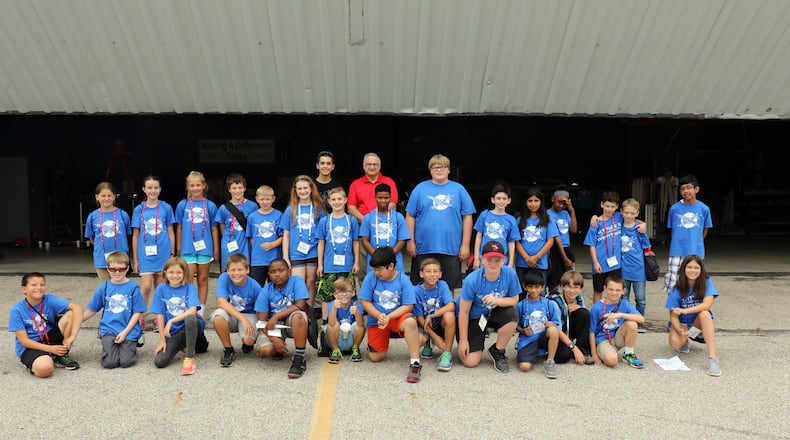Beafore, executive director of SelectTech GeoSpatial’s presence at the Springfield-Beckley Municipal Airport, should not go unrecognized for his work with Air Camp and other STEM efforts, said retired Lt. Gen. Richard “Dick” Reynolds, one of Air Camp’s founders.
“Frank’s approach is decidedly ‘hands-on,’ which has become a hallmark and market differentiator for Air Camp, cementing the idea that the STEM found in the development and production of these aviation and aeronautics systems can lead to hugely exciting education and rewarding career choices,” said Reynolds, who nominated Beafore as a Dayton Daily News Community Gem.
With about 25 employees, Beafore has overseen SelectTech in Springfield for 15 years, building specialized systems for the Department of Defense and defense industry customers.
From that perch, Beafore is uniquely suited to preach the STEM mission. That mission is simple, from his perspective: STEM not only keeps the nation strong, but it can offer a great career.
“I’ve really invested a lot of time trying to assist STEM activities for young people,” Beafore said.
You might say what drives him is the memory of a beach-ball-sized satellite —the Russian satellite Sputnik.
Launched in October 1957, the satellite stiffened American resolve to catch up to the then-Soviet Union in technology and science, Beafore remembered.
“President Kennedy saw this, and he put some technical programs in various high schools,” he recalled. “I was very lucky to take a three-year Navy electronics course, and that really launched me on my career.”
That led to a bachelor’s degree in mechanical engineering and his career today.
About the Author

